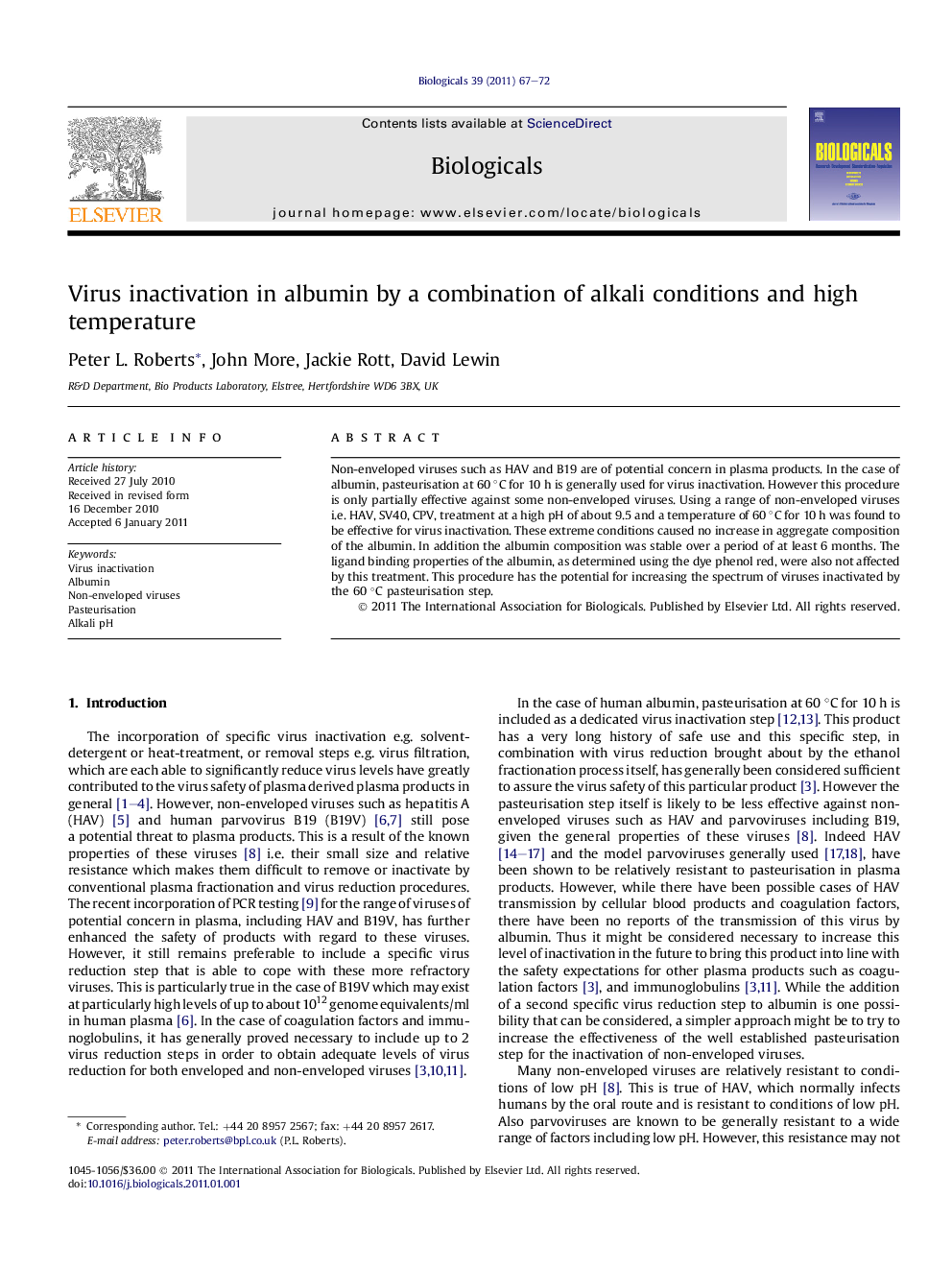| Article ID | Journal | Published Year | Pages | File Type |
|---|---|---|---|---|
| 2034314 | Biologicals | 2011 | 6 Pages |
Non-enveloped viruses such as HAV and B19 are of potential concern in plasma products. In the case of albumin, pasteurisation at 60 °C for 10 h is generally used for virus inactivation. However this procedure is only partially effective against some non-enveloped viruses. Using a range of non-enveloped viruses i.e. HAV, SV40, CPV, treatment at a high pH of about 9.5 and a temperature of 60 °C for 10 h was found to be effective for virus inactivation. These extreme conditions caused no increase in aggregate composition of the albumin. In addition the albumin composition was stable over a period of at least 6 months. The ligand binding properties of the albumin, as determined using the dye phenol red, were also not affected by this treatment. This procedure has the potential for increasing the spectrum of viruses inactivated by the 60 °C pasteurisation step.
